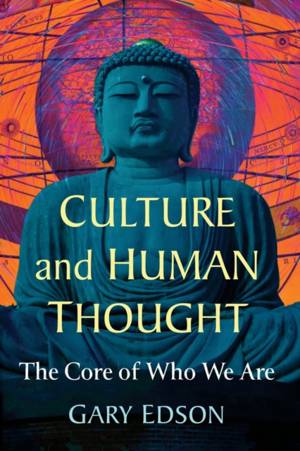
- Retrait gratuit dans votre magasin Club
- 7.000.000 titres dans notre catalogue
- Payer en toute sécurité
- Toujours un magasin près de chez vous
- Retrait gratuit dans votre magasin Club
- 7.000.000 titres dans notre catalogue
- Payer en toute sécurité
- Toujours un magasin près de chez vous
Description
Individuals often view "culture" as activities beyond their interests, associating the concept with exclusivity or high art. To be cultured is often synonymous with engaging in physical expressions of art, like opera, a classical music concert, a museum exhibit or a theater performance. While culture does indeed extend to all these things, it is the internal processes of memory, language, imagination and thought that frequently have more significance than any real-world activity. Culture is day-to-day life, ideas, identity and perception.
This book investigates the ways in which thought and belief have inspired collective human endeavors and traditions. It brings the act of thinking into focus, outlining its effect on civic development while exploring the history of cultural epistemology. Spanning time periods and geographic regions, chapters derive new meaning from the connections between thought, belief, tradition and the cultures they create. They explore how active thinking leads to group identity and document the multigenerational ideas and attitudes that have strengthened cultural memory.
Spécifications
Parties prenantes
- Auteur(s) :
- Editeur:
Contenu
- Nombre de pages :
- 194
- Langue:
- Anglais
Caractéristiques
- EAN:
- 9781476690742
- Date de parution :
- 20-10-22
- Format:
- Livre broché
- Format numérique:
- Trade paperback (VS)
- Dimensions :
- 147 mm x 224 mm
- Poids :
- 272 g







